Health
-
Lin Test
text with link. This is a quiz. Some text Name Name Quo modo autem philosophus loquitur? Tecum optime, deinde etiam cum mediocri amico. Invidiosum nomen est, infame, suspectum. Name Name…
-

Gender-affirming care is rare, study says
Fewer than 1 in 1,000 transgender youth receive hormones or puberty blockers

-

Nature offers novel approach to oral wound care
Slug’s sticky mucus inspiration behind adhesive hydrogel that can seal wounds in wet environment

-

Time for a rethink of colonoscopy guidelines?
Change informed by new findings would help specialists focus on those most at risk, researcher says

-

Should pharmacists be moral gatekeepers?
‘The problem is not opioids,’ says author of ‘Policing Patients’ — it’s overdose, pain
-

The deadly habit we can’t quite kick
Actions by tobacco companies worry researcher even amid ‘dramatic decrease’ in smoking among young Americans

-
Putting health in context
Panelists at the Harvard T.H. Chan School of Public Health examined social disparities that make some people more likely to end up sick than others.

-
March mammal madness
An assistant professor of evolutionary biology, Katie Hinde is also the creator of Mammal March Madness, a tournament that emulates the college basketball playoffs and pits species against each other in simulated combat.

-
Possible progress against Parkinson’s
Harvard Stem Cell Institute researchers at McLean Hospital have taken what they describe as an important step toward using the implantation of stem cell-generated neurons as a treatment for Parkinson’s disease.

-
A new stem cell advance
Collaborating with scientists elsewhere, Harvard Stem Cell Institute researchers have devised two methods for using stem cells to generate the type of neurons that help regulate behavioral and basic physiological functions in the human body, such as obesity and hypertension, sleep, mood, and some social disorders.

-
Tuning in on brain waves
Researchers have identified a group of neurons in the brain. The role of this cell type, in a region of the brain important for “waking up the cortex,” had not been previously identified. It may suggest potential therapies for disorders like schizophrenia.
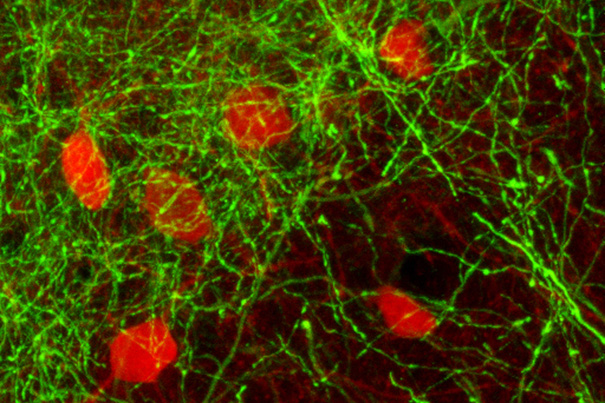
-
An opening for measles
In the wake of the recent measles outbreak, a panel of experts convened at Harvard Law School to discuss the ethical, legal, and public health issues around vaccination.

-
Perception of food consumption overrides reality
Targeting mechanisms in the central nervous system might yield the beneficial effects of low-calorie diets on healthy aging without the need to alter food intake, suggests new research from Harvard T.H. Chan School of Public Health.
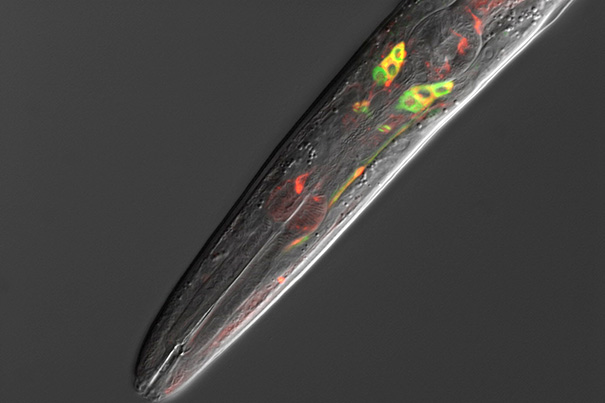
-
A new understanding of Alzheimer’s
Using the principle of natural selection, researchers have outlined a new model of the disease suggesting that mitochondria — power plants for cells — might be at its center.
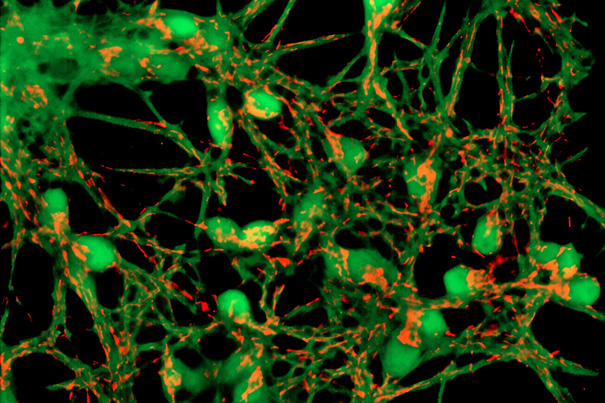
-
Malaria: Down but not out
Anti-malaria efforts have made progress in recent years, but authorities have to keep up the pressure if they are to defeat an illness that is not only ancient, but resilient, speakers at Harvard said.

-
The entire egg
Harvard Professor Walter Willett underlined the distinction between dietary and blood cholesterol, and stressed whole foods rather than any single nutrient as key to a healthy diet.

-
Shelter for the psyche
Harvard psychiatrist Jacqueline Olds offers some tips for coping with the snow and the dark days of winter.

-
Obesity epidemic needs new approach
Researchers call the notion that obesity is driven by either personal choice or the environment a false dichotomy, and suggest that these competing perspectives be merged to show the reciprocal relationship between the individual and the places he or she lives and eats.

-
Women with heart risk
Heart disease is the leading cause of death in women in the United States, deadlier than all forms of cancer combined. The good news is that up to 90 percent of heart disease may be preventable.

-
Sick with measles, again
Dyann Wirth, chair of the Harvard T.H. Chan School of Public Health’s Department of Immunology and Infectious Diseases, discusses what’s behind the resurgence of measles in the United States.
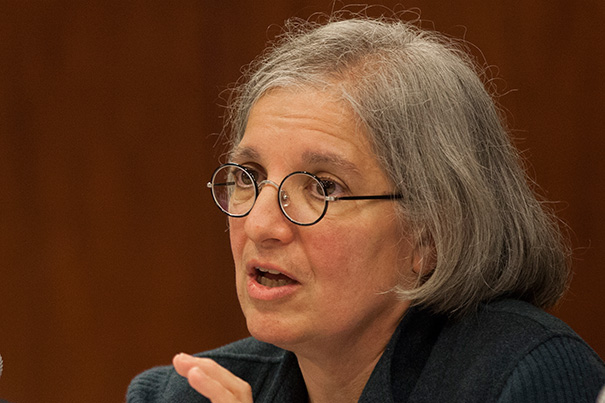
-
Pinpointing danger in hypertension
A Harvard endocrinologist was senior author on a study pinpointing the precise high blood pressure level and critical time when intervening was tied to a decrease in the risk of death.
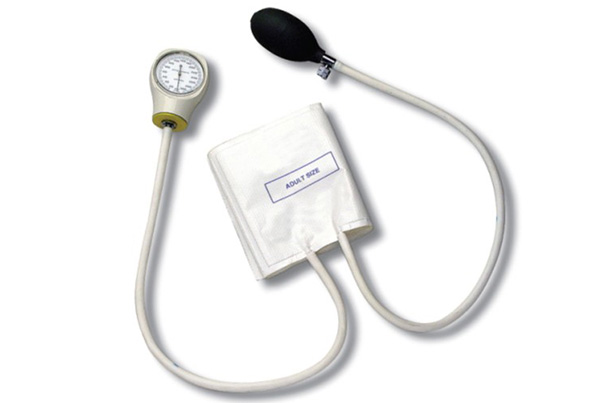
-
Twice doomed?
Growing evidence points to a role for volcanoes in dinosaur extinction, said planetary scientist Mark Richards in a Harvard lecture.
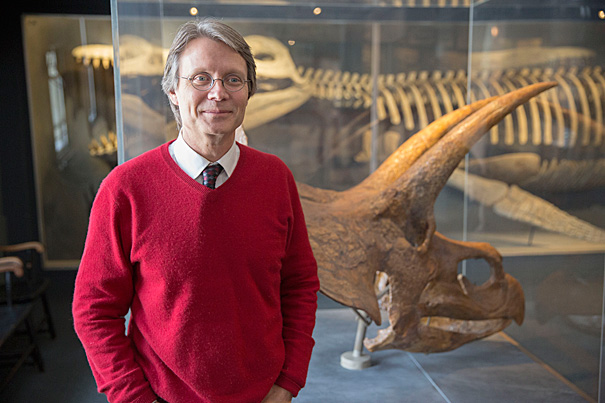
-
Unlocking fat
A study by Emily Groopman ’14 shows that cooking helps to unlock the calories in fatty foods.

-
Walk like a man
The fossilized hipbone of an ape called Sivapithecus is raising a host of new questions about whether the upright body plan of apes may have evolved multiple times.
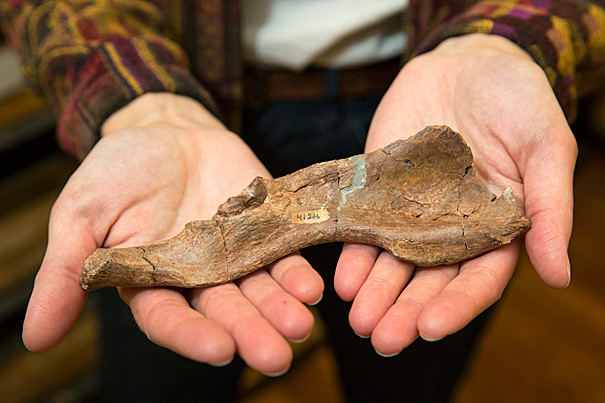
-
Harvard’s Odyssey unlocks big data
Harvard faculty and researchers are using big data to answer society’s most challenging questions, and doing it with the help of FAS Research Computing (FASRC). Founded in 2007, FASRC had one goal: to provide Harvard faculty, students, and staff with leading-edge computational resources.

-
Vitamin D protects some against colorectal cancer
A new study by investigators at Dana-Farber Cancer Institute demonstrates that vitamin D can protect some people with colorectal cancer by perking up the immune system’s vigilance against tumor cells.

-
Imaging captures how blood stem cells take root
Harvard-affiliated researchers have provided a see-through zebrafish and enhanced imaging that offer the first direct glimpse of how blood stem cells take root in the body to generate blood.

-
Steering stem cell trafficking into pancreas reverses Type 1 diabetes
Harvard researchers at Brigham and Women’s Hospital have uncovered a way to enhance and prolong the therapeutic effects of mesenchymal stem cells in a preclinical model of Type 1 diabetes.
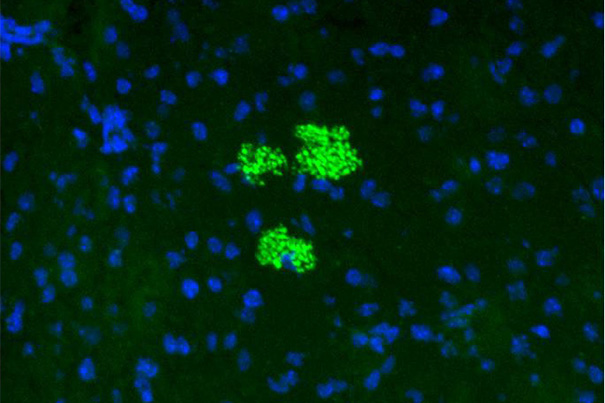
-
Breakthrough on chronic pain
Imaging study finds the first evidence of neuroinflammation in brains of chronic pain patients, which could lead to new, targeted treatments.
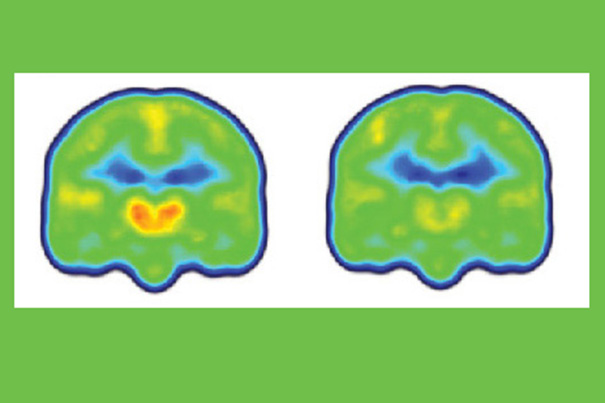
-
Sounding out speech
A new study demonstrates that infants as young as 6 months can solve the invariance problem in speech perception.

-
The divergent skull
New work by Harvard scientists challenges long-standing ideas on skull development in vertebrates.

-
Year born may determine obesity risk
Framingham Heart Study, PNAS Early Edition, Harvard Medical School Investigators working to unravel the impact of genetics versus environment on traits such as obesity may also need to consider a new factor: when individuals were born.

-
Bacteria ‘factories’ churn out valuable chemicals
A team of researchers led by Harvard geneticist George Church at the Wyss Institute for Biologically Inspired Engineering and Harvard Medical School has made big strides toward a future in which the predominant chemical factories of the world are colonies of genetically engineered bacteria.
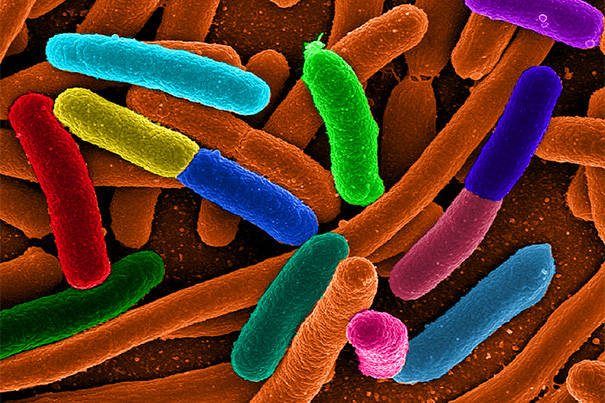
-
Growing support for dietary restriction
A new study led by Harvard researchers identifies a key molecular mechanism behind the health benefits of dietary restriction, or reduced food intake without malnutrition.

-
Using weights to target belly fat
A Harvard study found that men who did 20 minutes of daily weight training had less increase in age-related abdominal fat than men who spent the same amount of time doing aerobic activities.

-
A cost of culture
A new study, authored by Collin McCabe, a doctoral student in Harvard’s Department of Human Evolutionary Biology, suggests that increased exposure to disease has played an important role in the evolution of culture in both humans and non-human primates.


